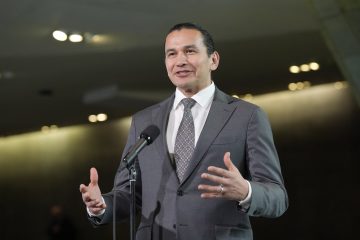David Miller: A Leader in Canadian Politics

Introduction
David Miller, the 63rd mayor of Toronto, served from 2003 to 2010, shaping the city with his progressive policies and leadership. His tenure is significant not only in local governance but also in broader Canadian political discourse. Miller’s approach to urban issues, environmental sustainability, and community engagement has left a lasting legacy. As Canadian cities face growing challenges like climate change and urban decay, Miller’s strategies in addressing these issues continue to resonate.
Key Policies and Achievements
During his time in office, Miller was known for his commitment to environmentalism. He launched the Toronto Climate Action Plan, aiming to reduce greenhouse gas emissions by 30% by 2020. Under his leadership, Toronto also saw an investment in public transit, with initiatives aimed at improving accessibility and efficiency, including the expansion of the Transit City plan, which proposed new light rail lines throughout the city.
Moreover, Miller’s administration implemented various affordable housing initiatives to address the city’s growing housing crisis. These policies were designed not only to create more housing but also to ensure it was accessible to low-income residents, reflecting his commitment to social equity.
Challenges Faced
Despite his successes, David Miller’s term was not without challenges. One of the most notable was the city’s budget deficits and controversies surrounding his administration’s handling of various civic issues, including policing and homelessness. His efforts to increase taxes to fund public services faced pushback, raising debates about the balance between fiscal responsibility and the need for public investment.
Post-Mayoral Life and Legacy
After leaving office, Miller continued to influence Canadian politics through his work with environmental organizations and as a public speaker. He has been vocal about the need for cities to take charge in the climate crisis and has advocated for policies that advance social justice and environmental reliability in urban settings. His work after the mayoralty serves to enhance his legacy as a leader who prioritizes sustainability and community well-being.
Conclusion
David Miller’s impact on Toronto and Canadian politics cannot be overstated. His focus on climate action, social equity, and urban planning has paved the way for future leaders and set a blueprint for addressing modern urban challenges. As Canadian cities continue to evolve, Miller’s policies and principles remain relevant, offering insights into the importance of community-focused governance. His journey is emblematic of the potential for political leaders to effect real change in their communities and beyond.





